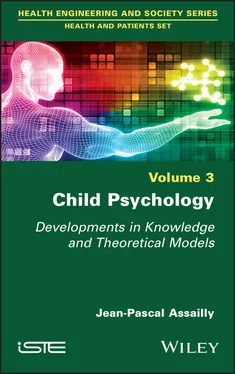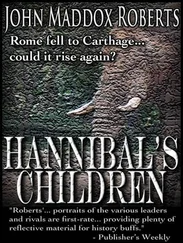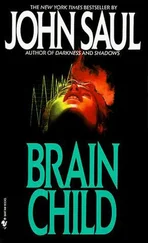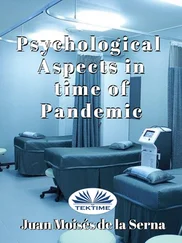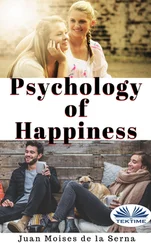White House Conference, 1932
This book is the first in a two-part series:
1) In this book, we study the evolution of our knowledge in the field of child psychology over the last 40 years.
2) In a future work, we will analyze the impacts of this evolution on practices and policies in the field of childhood (schooling, health, safety, parenthood); for this, we will have to question the practitioners.
In 1983, my teacher, René Zazzo, published one of his last books, Où en est la psychologie de l'enfant? and dedicated it to us (“To my students at Nanterre, as a token of my gratitude”). After 40 years, we are picking up the baton.
He particularly pointed out the drifts and aporias in the media conception of psychology (“the psychology of philosophy professors is psychoanalysis, and what psychoanalysis!”); he was disenchanted with the wording and what it covered. The situation has not improved much.
Psychology was for a long time taught in 12th-grade philosophy, tackling various themes such as perception and intelligence, then disappeared from the curriculum in 2003 and was reduced to a few texts by Freud and Lacan. It is amusing to see that National Education adopts the very reductionist view that psychology is the same as psychoanalysis, and vice versa 1.
However, in various countries (United States, Belgium, Switzerland), psychology is still taught in secondary schools.
When the Ministry of Education formed 40 working groups of professionals for curriculum reform, there was not a single psychologist.
In order to provide some balance to adolescents, during what is a risky time in their lives, importance should be placed on reintroducing knowledge of scientific psychology, on how emotions, relationships, self-knowledge, etc. work.
On bookstore shelves, the most noticeable evolution has been the shift from 90% scientific psychology/10% personal development in the 1970s to 90% personal development/10% scientific psychology today. This says much about the popular conception of psychology. Even in “child psychology” sections, there is still a lot of emphasis on personal development.
The divisions that Zazzo analyzed are still there:
– between practice and research;
– between child and genetic psychology;
– between the field and the laboratory;
– between the epistemic subject of Piaget and others and the individual in his totality (do we reduce the child to sectors or development indicators, as neuroscience does now 2, or preserve the psychology of the person?).
Very schematically, the question on which this book is structured (where are we now, 40 years later, and where are we going?) covers two main analyses:
– new developments in child psychology, covering phenomena that did not exist before in a significant way in the real lives of children (e.g. homoparentality, attacks, Covid-19);
– new developments in already long established objects of study (e.g. intelligence, the mother–child relationship), where significant theoretical evolutions have taken place.Table A.1. Historical evolution of the number of French subjects by age group(source: INSEE 2016)Less than 15 years old15–19 years old20–24 years old199111,808,9044,353,4794,392,026199211,846,2944,186,6304,399,883199311,841,6374,050,7164,427,167199411,809,6283,934,1834,428,102199511,756,0313,894,3644,362,366199611,676,3513,949,7404,242,118199711,601,5474,024,3704,084,939199811,532,9394,067,0563,956,287199911,521,6974,073,1403,848,339200011,558,4464,068,1943,809,829200111,613,6514,037,4083,867,157200211,645,7164,033,8893,945,290200311,669,4514,040,4073,996,557200411,680,4874,103,4864,014,148200511,696,7884,152,0694,037,139200611,715,9504,171,8034,044,928200711,778,2014,146,5954,029,070200811,827,2124,121,6734,003,665200911,917,9514,059,3574,030,922201011,998,9514,011,5844,030,881201112,060,9433,977,3274,014,582201212,123,7143,923,3993,985,089201312,186,6893,909,3923,955,259201412,221,4273,944,2103,877,125201412,318,6453,966,9733,890,578201512,349,7744,009,4453,819,678201612,320,0734,075,3853,765,556
With regard to historical developments, one question keeps coming up: are the trends in this or that behavior, situation, phenomenon, etc. decreasing, increasing or remaining stable?
This immediately raises the question of the validity of the measurement of the phenomenon: is it actually increasing, or is it just because it is more often detected? Is it actually decreasing, or is it just because we do not pay attention to it anymore?
One of the variables to be controlled in order to know if a phenomenon is stable, increasing or decreasing is, of course, demography: generally, we can say that the number of children and teenagers in France has been stable for 30 years, in a context of strong aging of the population, as the following data shows:
– all ages:- 1992: 58 million;- 2019: 67 million (increase of 14%);
– between 0 and 19 years old:- 1992: 15.5 million;- 2019: 15.4 million (increase of 0%, in fact a decrease);
– 65 years and older:- 1992: 8.2 million;- 2019: 13.1 million (increase of 60%).
The population concerned: how many young people are there?
Schematically, there are 800,000 young French people per age group (12 million children, 4 million adolescents, 4 million young adults). Compared to the birth rate of the 30 years following the end of World War II, there was a certain drop in birth rate in the 1990s, which explains the lower number of 15–24-year-old cohorts today, but we can see how the birth rate has increased since 2000 3.
October 2021
1 1 For other actors, another version is that psychology is only neuroscience today.
2 2Neuroscience or the death of the small horse of psychology.
3 3 A more vigorous parentality policy in France compared with that of our neighbors, is often cited as a factor in this phenomenon.
1
Interdisciplinary Themes
Before addressing the evolution of knowledge in each area of child development, we thought it would be useful to point out the major themes that run through our discipline and guide the work in various fields.
1.1. The question of prediction
Behavioral genetics, like psychoanalysis, looks for causality in the child’s past in different ways, but can we predict the child?
The retrospective approach can even prescribe, because by predicting too much, we end up creating “fate neuroses”, with prophecies ending up realizing an unfavorable future for the child.
1.1.1. Prediction before birth
1.1.1.1. “To be born or not to be born”, “Not to be born at all is best..." (chorus of Oedipus at Colonus)
Using prenatal diagnoses, doctors and parents can now predict the appearance of diseases and deficiencies (trisomy, cystic fibrosis, etc.); it is even more complex for the birth of a second child when the first child has one of these types of hereditary disease. We can see the risks of eugenics.
Even in the case of normal development, the choice of a child’s sex has led to disparities in some countries. Are we going to go as far as selective pairing of parents based on their DNA?
Two strategies are currently available to parents in the case of a proven hereditary risk: to modify the embryo through biotechnology or to medically terminate the pregnancy. Both can pose moral or ethical dilemmas for the parents. This theme will be taken up again in Chapter 2, on the fetus.
1.1.1.2. Predicting adult problems from childhood
The links between behavioral problems in children and problems in adulthood are well known and affect almost all areas of life. Various mechanisms may be at work:
– the continuity of a trait from childhood to adult life (the anxious child becomes an anxious adult);
Читать дальше
